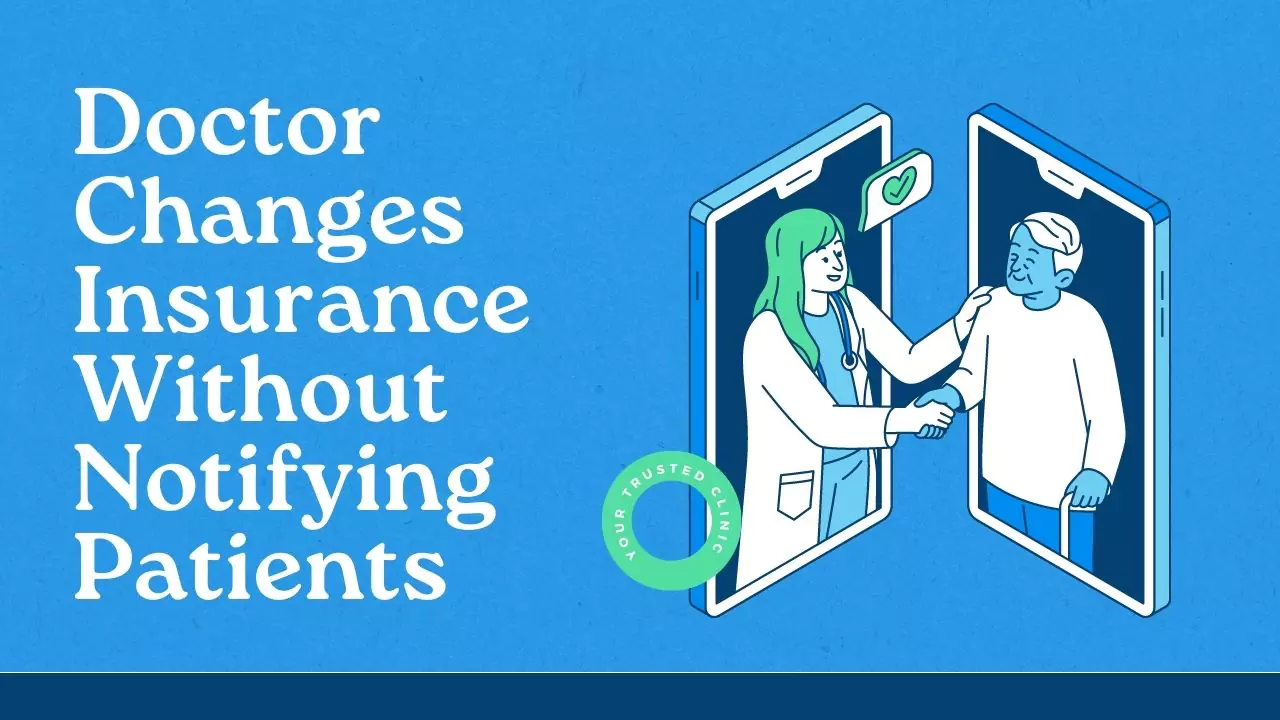If you have a good relationship with your doctor, you may be shocked and disappointed to find out that they have changed their insurance group without notifying you. This means that your doctor is no longer in-network with your health plan, and you may have to pay more out of pocket for your visits or find a new doctor.
This article will explain why this may happen, how it affects you as a patient, and what steps you can take to deal with this situation.
Impact of Changes on Doctor’s Insurance
Financial Reasons for Changes
Doctors are not required to accept health insurance plans or to accept the rates that insurance companies decide to pay. Sometimes, doctors may switch to a different insurance group or go cash-only because they are unhappy with the reimbursement rates or the administrative burden of dealing with certain insurers. This may allow them to charge more for their services or reduce their overhead costs.
Changes in Insurance Contracts
Sometimes, doctors may change their insurance group because of changes in their contracts with insurance companies or health systems. For example, an insurance company may decide to drop a certain provider network or renegotiate the terms of the contract. Or, a health system may decide to part ways with an insurance network over issues like physician reimbursement. These changes may affect many doctors and patients at once and may occur without much notice.
How Patients Are Affected?
1. Disruption of Care
When your doctor changes their insurance group without notifying you, you may face a disruption of your care. You may have to find a new doctor who is in-network with your plan and who can provide the same quality of care and continuity of care that you had with your previous doctor. This may be difficult, especially if you have a chronic condition or a complex medical history that requires regular follow-up.
2. Confusion and Stress
Finding out that your doctor is no longer in-network with your plan may also cause confusion and stress for you as a patient. You may not know why this happened, how much you will have to pay for your visits, or how to find a new doctor. You may also feel betrayed or abandoned by your doctor, especially if you had a long-term relationship with them and trusted them with your health.
3. Additional Costs
Another consequence of your doctor changing their insurance group without notifying you is that you may have to pay more for your visits or tests. Depending on your plan, you may have higher copays, deductibles, coinsurance, or out-of-pocket maximums for out-of-network providers than for in-network providers. You may also receive surprise bills from your doctor or other providers who are involved in your care but are not in-network with your plan. These bills can be very expensive and hard to negotiate.
Steps for Patients to Take
1. Contact the Doctor’s Office
The first step you should take when you find out that your doctor has changed their insurance group without notifying you is to contact their office and ask for an explanation. You should also ask if they are willing to negotiate a cash price or offer a payment plan for your visits. Some doctors may be flexible and willing to work with you if you are a loyal patient.
2. Check with Insurance Provider
The next step you should take is to check with your insurance provider and verify your benefits and coverage for out-of-network providers. You should also ask if they can offer an out-of-network exemption or exception for your doctor, especially if you have a special circumstance such as a chronic condition, a pregnancy, or an ongoing treatment. Some insurance companies may be willing to process your claims under your in-network benefits if you can demonstrate that they did not inform you of the change or that you have no other options.
3. Verify Coverage Before Scheduling Appointments
The final step you should take is to verify your coverage before scheduling any appointments or tests with your doctor or other providers. You should ask for an estimate of the charges and how much your insurance will pay. You should also ask for an itemized bill after each visit and review it carefully for any errors or discrepancies. If you receive any surprise bills, you should contact the provider and the insurance company and try to resolve them as soon as possible.
Conclusion
Finding out that your doctor has changed their insurance group without notifying you can be a frustrating and stressful experience. However, you can take some steps to minimize the impact on your health and your wallet. You should contact your doctor’s office and your insurance provider, verify your coverage, and negotiate your bills. You should also consider finding a new doctor who is in-network with your plan and who can meet your healthcare needs.





